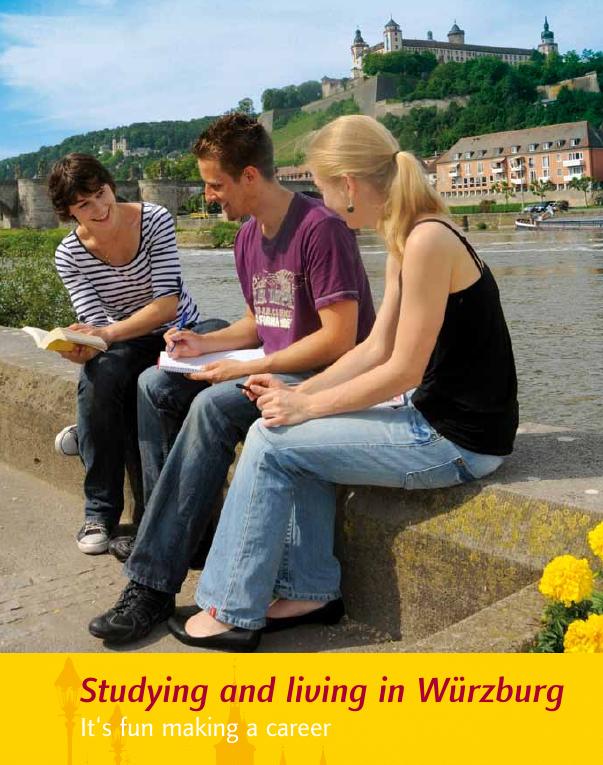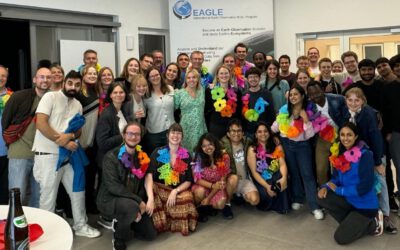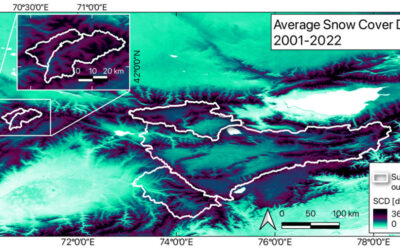
How to Apply
procedure, FAQ and submissionThe first EAGLE semester starts each year in the Winter term (starting in October) and applications have to be submitted before the application deadline (May 15th, see counter on the right) of the respective year in order to be eligible to be considered for that year. Students are selected via a standardized aptitude assessment procedure that meets international criteria. After the application deadline passed, you will be invited for an interview (see FAQ).
Applications are due once a year and interviews will start soon after. The final acceptance letter will be send within approx. 4 weeks after the submission deadline including the official legal letter by the University as well as further instructions how to proceed. Rejection letters will be send out by the university at a later stage. The study programs starts each year in October and the winter term ends in February. You have to enroll in person beforehand.
The following documents need to be handed in (in english):
- a cover letter stating your interest and motivation (approx. one page)
- a CV including two references (no letter of recommendation is needed)
- your B.Sc. or higher degree certificate incl. a list of all courses and grades (transcripts of records, if available final copy otherwise preliminary one (if you have no B.Sc. or M.Sc. yet, please see the FAQ )
- at least 10 ECTS in remote sensing or spatial data analysis (please list them in your CV)
- at least 5 ECTS in statistics, modeling, programming or remote sensing/GIS (please list them in your CV)
- a B.Sc./M.Sc. within an English study program or a certificate of English language proficiency (at least: TOEFL: 72; IELTS: 6.0; HZB: 7; GER: B2 (Abiturniveau))
- certificate of basic German language skills (A2, can be handed in one year after acceptance to the study program. The corresponding language course if offered by the university and is recommended anyways to gain a basic knowledge of German within the first year of EAGLE)
We will review all applications and if you are eligible to study in the EAGLE M.Sc. program you will be invited for an interview (in person or online) before a final decision ís made.
needed documents
- letter of motivation
- CV
- B.Sc.certificate, incl. course grades
- English language proficiency certificate
- see main text for details
all documents need to be submitted as one (1) pdf via this submission form
application deadline (CEST) for winter term in:
Day(s)
:
Hour(s)
:
Minute(s)
:
Second(s)
midnight May 15th CEST – see your time zone
more details on the webpage of the international office at the University Wuerzburg
FAQ: Application Process
What is meant with "references"?
Why do I have to submit my application as one pdf?
How do I merge all my documents into one pdf?
What happens after I applied?
What should my presentation be about?
What happens after I had my interview?
When are the courses actually starting?
Most EAGLE courses take place once a week within the winter/summer term just a few are offered as block courses (4-5 days in a row from 9am till 6pm) within or after the winter/summer term.
Contact us if you have any questions!
Get In Touch
General FAQ
What kind of background is expected?
I do not have finished my B.Sc. yet. What shall I do?
Who are the EAGLE students?
How long does the M.Sc. take?
How much are the tuition fees?
How are the students selected?
Do I need German language proficiency to take the courses?
Where do I find more details?
What are the opportunities for future career?
Are there any scholarship/grant/stipend opportunities?
Do similar study programs exist in Germany?
- Remote Sensing, Geoinformation and Visualization
- Global Change Geography
- Environmental Sciences
- Global Change Ecology
please let us know if we missed any and we are happy to include them.
Submit your Application
Recent News
Learn about EAGLE updates and general news
EAGLE summer dialogue
Our annual EAGLE summer dialogue was a great success again even though the weather was quite challenging. The EAGLEs organized a fantastic event with fun activities, great images reviving the last months and years and of course a BBQ, drinks and an outstanding...
new publication by our EAGLE student Clara Vydra
Our EAGLE student Clara just published an article about snow cover variability in Central Asia - great to see our young EAGLE MSc students being on a good track for their scientific career. from the abstract: "Climate change is affecting the snow cover conditions on a...
UAS team – meme
The UAS (UAV or drone) team was quite busy the last months to collect data in Europe, Africa or Arctic and the group spend plenty of hours traveling and collecting Lidar, multispectral, thermal or hyperspectral data in various ecosystems. Of course in many cases faced...






